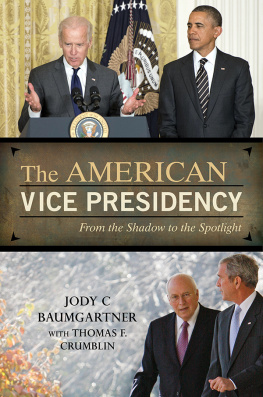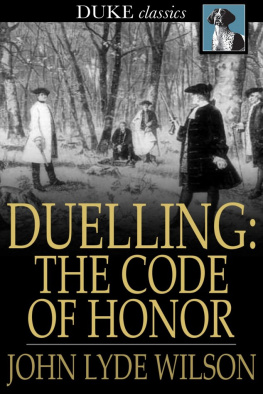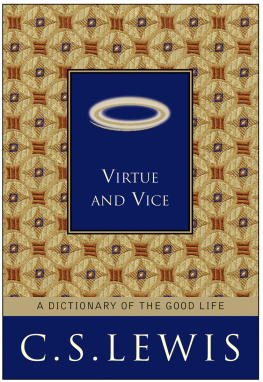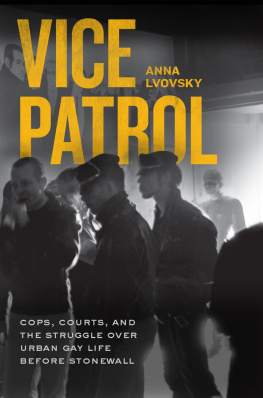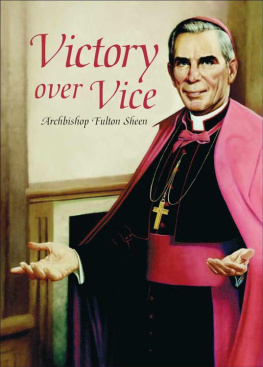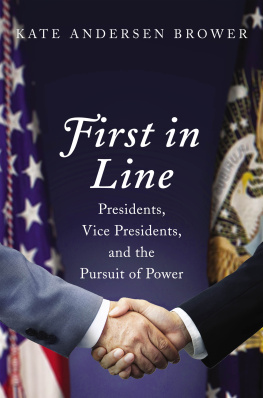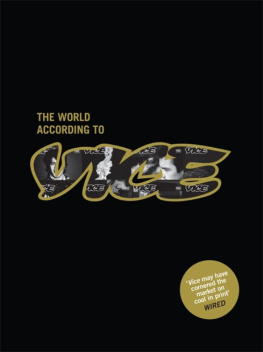Aristocratic Vice
DONNA T. ANDREW
Aristocratic Vice
THE ATTACK ON DUELLING, SUICIDE,
ADULTERY, AND GAMBLING IN
EIGHTEENTH-CENTURY ENGLAND
Yale UNIVERSITY PRESS
New Haven &
London
Published with assistance from the Annie Burr Lewis Fund.
Published with assistance from the foundation established in memory of Philip
Hamilton McMillan of the Class of 1894, Yale College.
Copyright 2013 by Yale University.
All rights reserved.
This book may not be reproduced, in whole or in part, including illustrations, in any form (beyond that copying permitted by Sections 107 and 108 of the U.S. Copyright Law and except by reviewers for the public press), without written permission from the publishers.
Yale University Press books may be purchased in quantity for educational, business, or promotional use. For information, please e-mail sales.press@yale. edu (U.S. office) or sales@yaleup.co.uk (U.K. office).
Set in Postscript Sabon type by IDS Infotech Ltd.
Printed in the United States of America.
Library of Congress Cataloging-in-Publication Data
Andrew, Donna T., 1945. Aristocratic vice : the attack on duelling, suicide, adultery, and gambling in eighteenth-century England / Donna T. Andrew. pages cm
Includes bibliographical references and index.
ISBN 978-0-300-18433-4 (cloth : alk. paper) 1. Great BritainMoral
conditions. 2. EnglandSocial life and customs18th century.
3. Upper classEnglandConduct of lifeHistory18th century.
4. VicesHistory18th century. I. Title.
HN400.M6A53 2013
305.520941dc23
2012041362
A catalogue record for this book is available from the British Library.
This paper meets the requirements of ANSI/NISO Z39.481992
(Permanence of Paper).
10 9 8 7 6 5 4 3 2 1
This book is dedicated to the memory of my father, Bernhard Trembowelski
Contents
Acknowledgments
This book has been in the works for more than three decades. And of course, there are numerous people and institutions to thank for having discussed ideas with me, sponsored me for stays, or invited me to present papers. So after all this time, if Ive forgotten anyone, please just put it down to creeping senility.
First and foremost, I would like to note my gratitude to my friend and mentor, John Beattie, who has enormously helped me over the years, most importantly by giving me a sterling model of both intellectual integrity and hard work. And then to my friends and colleagues on both sides of the Atlantic and Pacific, John Brewer, Margot Finn, Joanna Innes, Sarah Lloyd, Randall McGowen, Danny OQuinn, Mark Phillips, Nicholas Rogers, and Gillian Russell, more thanks for all your help, advice, and patience.
Next I would like to express my appreciation for the opportunity for both scholarly research and intellectual conversation that the following institutions afforded me during my stays: to the Humanities Research Centre at the Australian National University under its then-head, Iain McCalman, and later also in Australia as a Visiting Research Fellow at the Law School of the University of Adelaide and to my friends in both History and Law, and finally thanks to Emmanuel College, Cambridge, for awarding me a Fellowship for a wonderful semester there.
In Canada I would like to thank following institutes for inviting me to give a paper: the Early Modern Studies Programme at Dalhousie University, Green College at the University of British Columbia, the History Department of the University of Prince Edward Island, the Law School at the University of Toronto, and the Graduate-Faculty Colloquium at York University, Toronto.
In Britain my thanks both to the Department of History at the University of Warwick, and to the Women and Luxury conference held there, the Institute of Historical Research at the University of London, the Cambridge University Restoration to Reform Seminar, the Centre for Eighteenth Century Studies at the University of York, the Department of History at the University of Edinburgh, and for the opportunity to give a paper at my home away from home, Clare Hall College, Cambridge.
In Australia, I received feedback and friendship at the Law School of Griffith University, and the Departments of History of the University of Newcastle, Perth, and Queensland.
I would also like to express my deep appreciation to all the staff at the Microtext Center of the University of Toronto for their unfailing good humour and assistance. In addition I must commend the attention and extraordinary patience of my fine copyeditor, Katherine Scheuer.
And last, but certainly not least, I wish to thank the History Department of the University of Oregon at Eugene.
I would also like to express my indebtedness to the Social Sciences and Humanities Research Council of Canada for funding my research for many years. Also I would like to thank the Lewis Walpole Foundation for aiding in the publication of this volume.
Though it is rather obligatory to thank ones spouse for support and assurance, for fellowship and intellectual dispute, I gladly do likewise; I would, in addition, like to thank mine for ceaseless nagging, without which I probably never would have finished this book.
Introduction:
The Middle Way: Cultural Skirmishes
It was a commonplace in eighteenth-century England that in terms of importance, both fiscally and morally, the middling sort occupied a significant position. It was they who were the sinews and strength of a nation This was thought to be so not only because out of their Labour, Industry and Skill the greatest Part of all our Taxes are raised but also since in terms of national moral stability the middling People are certainly more happy in the married State, than Persons of a more elevated Dignity In contrast, both the upper and lower orders were chastised for their improvidence and immorality:
Cast but a single glance of the eye on the Great Vulgar, all devoted to Pleasure and Extravagance, even in a Christian Country; and then look again at the Little Vulgar, and youll find em all aping the Great ones, even to ruin and destruction What! is to be Great and Good, a Meanness of Spirit? and all Order and Decency become the Scorn of the People? the Great neither see, nor hear, nor regard any of these Things: but the Country Gentleman, and the middling sort of People, both hear and see, and feel it too.
Still, some recognized that this middle sort were not exempt from vice, that they, like their betters, enjoyed prodigious and unnecessary spending.
this Vice [is not] confined to those alone who affect a Prodigality beyond the real Profusion of their Plenty: But the same with glorious Extravagance, that drains off so much more than the Superfluities of the Affluent in high Life, is no less frequent among the middling sort of people.
Even here, however, the implication was that such middling irresponsibility was more a matter of imitation than an innate tendency. For it seemed obvious to many, as one newspaper reported, without any need for explication or justification, that so much more honest and incorrupt are the Middling people than the Great, as they are vulgarly nick-named!
However, while many historians have noticed a deep ambivalence among trading people in eighteenth-century England toward upper-class moresas middling people defined them, at any ratefew have considered such ambivalence in detail; It was commoner by far, notes one, for contemporaries to dwell on the superior moral credentials and industry of the middle class than to analyse its make-up. And yet very little historical analysis exists about this clichd and much-repeated trope.
Surely this lack of engagement can be explained by the sanctimonious and perhaps hypocritical quality of such self-applause: a fine example of which can be found, early in the century, in
Next page


